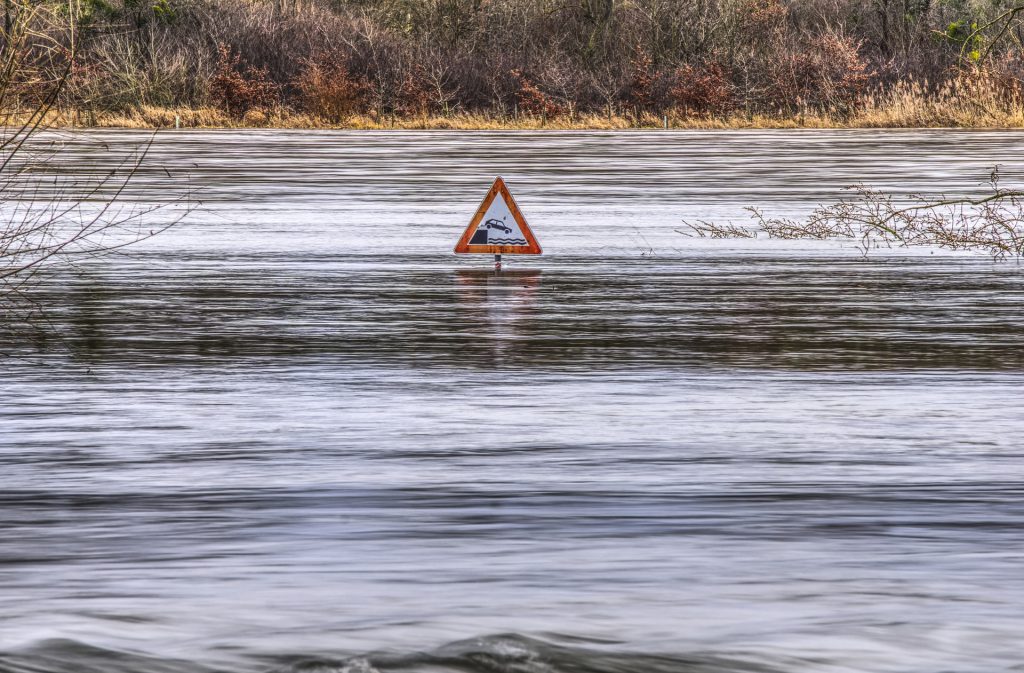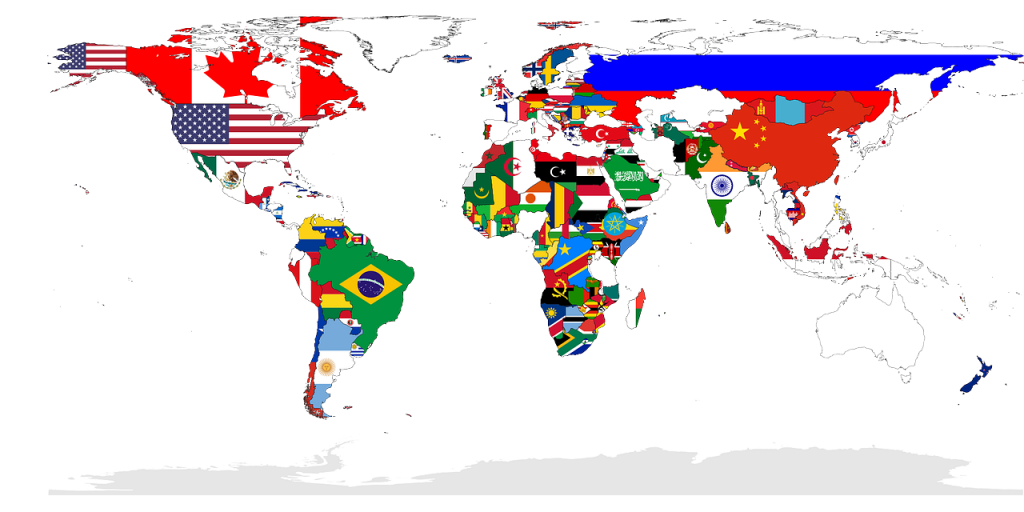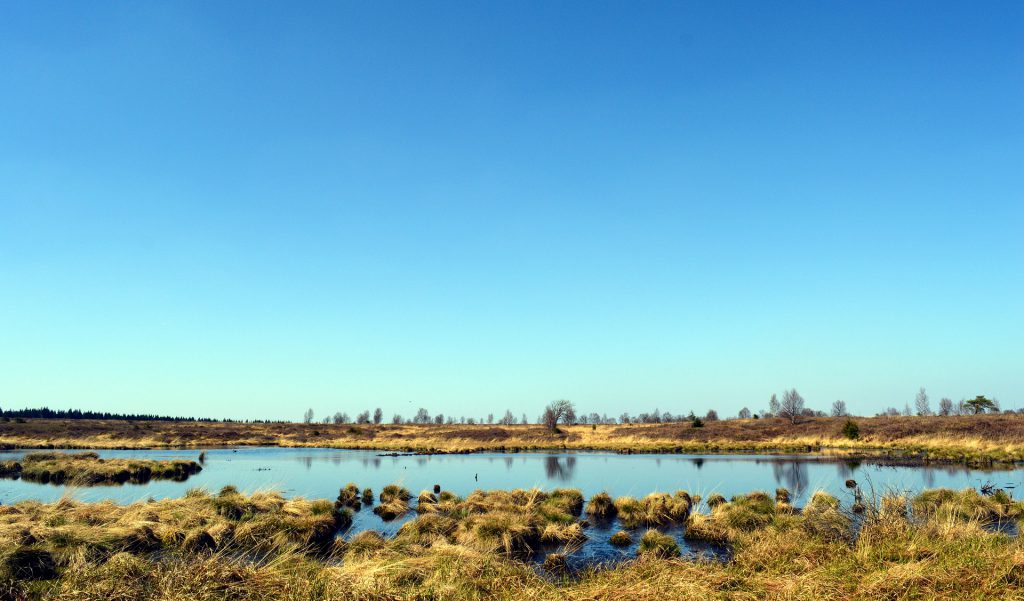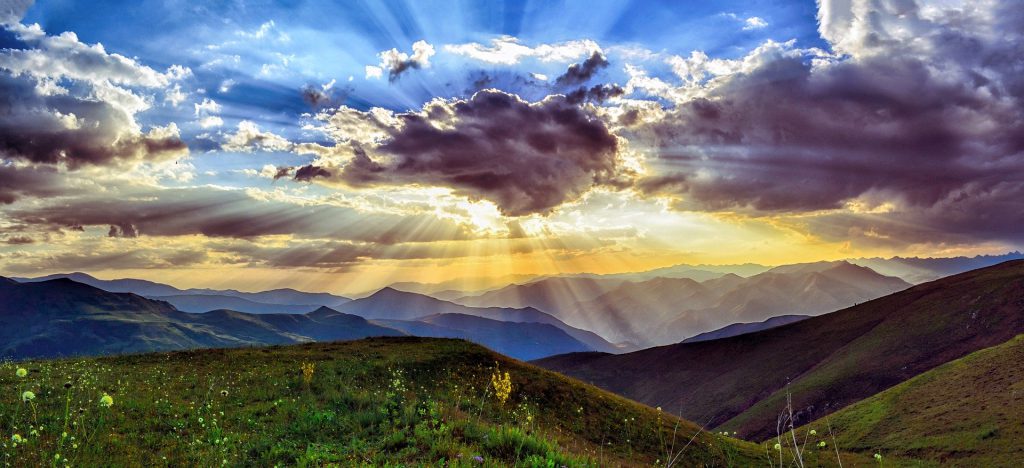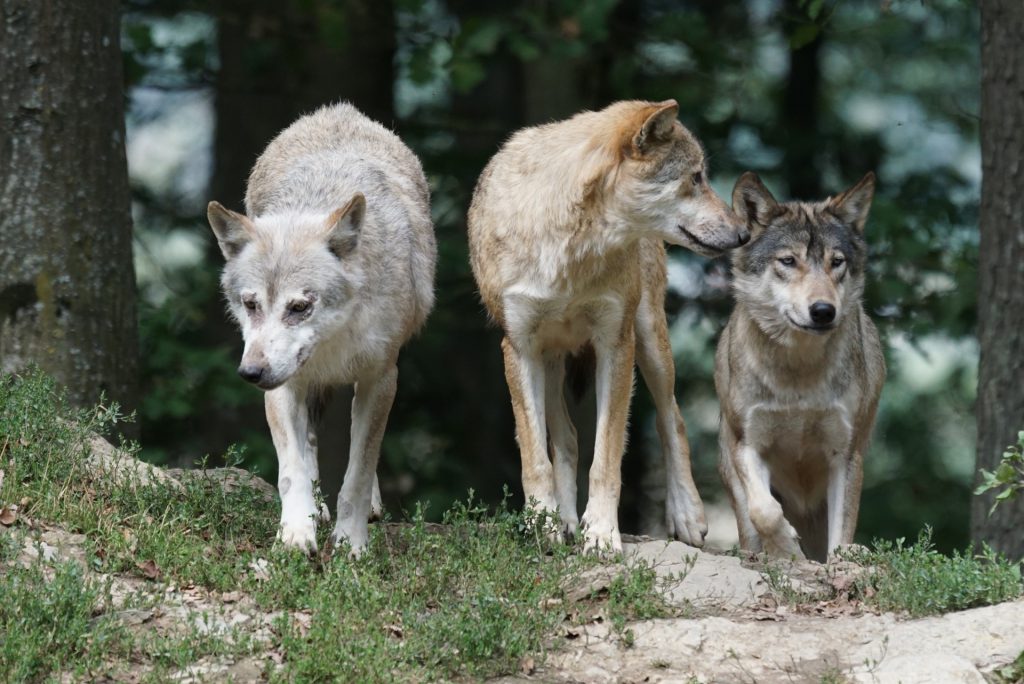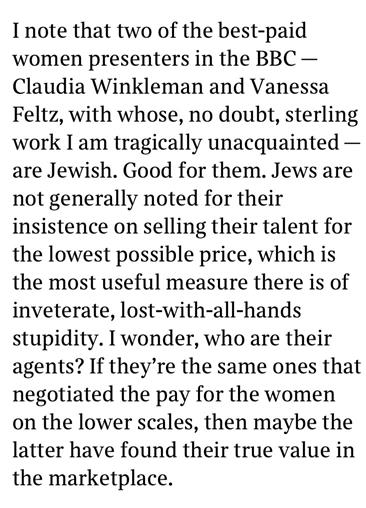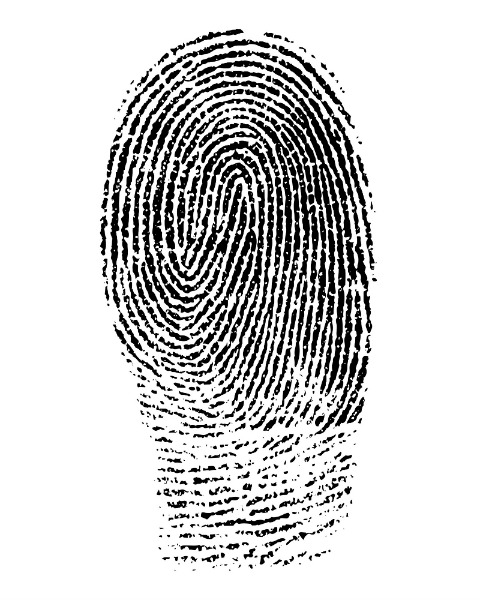
Do you ever wonder how you’d react to Climate Change? I don’t mean recycling and cycling, but what you’d do if everything came unstuck? What would you do if it led to a precipitous collapse of civilisation? Melodramatic perhaps, but a dystopic future is now probable. When it comes to dystopia, my preference is to only engage with it as entertainment. To consume it on my TV. On TV, after the collapse, the world will be left to those with fine teeth, good eyesight and healthy arches under their feet. That’s as much dystopia as I can manage. When I imagine the end of civilisation, I look at my sleep apnoea machine. I now need electricity to sleep safely. I’ve no interest in or ability to outlive the availability of a good dentist. I’m simply not cut out for such a world. So, taking the ultimate short-cut seems, to me, the best thing to do in that scenario. It’s a simple solution that solves a multitude of problems. A short-cut, complicated by my wife and my dog. I obviously haven’t broached this topic with my wife because I want her to stay my wife. As for Arwen, I don’t know what to do. Arthritis, pancreatitis, old-age and a lifetime of ease does not a survivor make. The humane thing to do is euthanise her, but how? I have no idea how one kills a dog painlessly. I have to hope she goes before civilisation does.
Do you have your escape plan ready for when there’s a tsunami heading your way? There is a piece of the Canary Islands waiting to drop into the ocean. Once it does, we are fucked. I live near the ocean, in a part of Kerry that can only be described as boggy. I’m doubly fucked. I imagine hauling my wife and dog up onto the roof of our house. But would it be high enough? When I’m at the beach I keep a weather eye on the water. If I see it retreat suddenly will I have time to make it back to the car? If I do, where’s the nearest high ground? Who do I call first? What if the tsunami hits and I’m with someone I don’t particularly like? What if we are the only survivors and I’m stuck with someone who’s a bit of a dickhead? Exploring a devastated landscape, struggling to get by, with someone I can’t help wishing had been caught by the wave.
I am, as you can see, a bit anxious. Visit my GP and see a therapist level of anxious, but not about our world ending in fire or water. My therapist says I catastrophise. She also used the term, awfulise. That’s a new one on me. Easier to spell and pronounce though. She’s right of course. I do imagine the very worst. This is not a new behaviour, but it is not entirely irrational. I grew up in the ‘80s and I was aware of the possibility of Nuclear Armageddon. I was interested in the world. I read about the world. I learned that all that was keeping the peace was mutually assured destruction. Which is mad. I don’t know how one doesn’t feel a tad uneasy about that. I was a child then, there was no way for me to do anything but worry.
Being interested in the world carries with it the price of knowing what bad shit is going on in that world. In the ‘90s, when history had stopped and we were able to address the hole in the ozone layer, I did not contemplate how me and mine would cope with disaster. Things seemed to be progressing. I miss the ‘90s, I wasn’t anxious then. Now I see disaster everywhere. Now I wonder how I’d kill my dog without hearing a whimper of pain escape her terrified face. I am anxious, but not about the world ending. If only it were that simple. I am anxious because for the first time since childhood, I feel powerless. Who’d have thought a middle-aged straight white man would manage to make the incipient end of all things about him?
As an adult I’d never felt powerless. Well, other than the experience of heartbreak, I’d never felt powerless. The world has always been my mollusc. I may be working class with a mediocre education, but I always felt I had a voice and/or a hand in the decisions that impacted on me. I knew how the system worked and made myself a part of it. I’ve always voted. Always been in a political party. Always given my opinion. Always prepared to knock on a stranger’s door to share that opinion. Always ready to make a politician aware that I have an opinion that better be listened to. I took for granted that I could understand and influence my immediate part of world. That I could understand and contribute to the rest of the world, even if only in a tiny way. I took for granted social, economic, scientific and cultural progress were inevitable. I took for granted that I had all the answers, that my optimism was well founded.
That optimism, that era of optimism, lent itself to me developing a world view which had very little self-examination in it. This was before ‘privilege’ had entered our lexicon. I was doing well, the world was doing very well, so obviously more of the same was what was needed. I looked around for an ideology to hang my hat on and neo-liberalism was that hook. Untrammelled capitalism and individualism were working. Our species had cracked the code of ever-growing prosperity and peace. If it isn’t broken, then lean the fuck into it. The only scratch on my rose-tinted glasses was Srebrenica. But more on that later.
This faith in neo-liberalism, for faith it was, crumpled in the face of The Great Recession. I had to acknowledge that my embrace of neo-liberalism was not a rational assessment of all the facts, parsed through my station and values. It was mere preference. A cobbling together of half understood concepts that were the most personally advantageous. An interpretation of reality that embraced a positive view of our species, the perfectibility of our species, that we were a rational species. An amalgam of ideas free of any understanding of my privilege or of the inevitable disaster that always awaits unchecked avarice. A failure to understand just how blindly and profoundly stupid our species is. It was a bracing experience. But credit where credit is due, I accepted I was a gobshite. I accepted I had been wrong about almost everything. I accepted that optimism is for the hard of thinking, the deniers of reality.
I lived in Dublin when Ireland’s economy took off. I moved back to Kerry just as our housing bubble was nearing its apogee. Moving back, I was struck by two things. The first was how alive Kerry was. That was new. The second was how chaotic the development was. There were housing estates being built in towns and villages but for the most part, all I saw were one-off-houses, ribbon development, bungalow blitz and whatever other terms are used to describe houses built as far away from established infrastructure as possible. I roll my eyes when rural politicians complain about the decline of villages when they continue to stand over the dispersal of population outside those villages. When they complain about the lack of public transport while defending development that makes public transport unviable. Who knew that when left to our own devices we make decisions that will bring immediate reward without any thought to long term risk and consequence?
Of course, there’s an evolutionary component to this stupidity. We did not require the ability to think long term. We evolved to meet immediate danger. We are absolutely top dog when it comes to immediate danger. We’ve mastered immediate danger so completely that we now invent it, just to feel that sweet sweet rush of adrenaline. Long term doesn’t extend beyond the next harvest, paycheque, holiday or election. So, I don’t know how we deal with Climate Change. We are not prepared to make the fundamental changes to our economy and society to arrest the ongoing damage we are doing. We elect politicians who are only too happy to pander to our unwillingness to change. And we give credence to the online charlatans who insist the moon is in fact made of cheese.
Has our species always been this stupid or has the internet made us stupid? Or has the internet merely made our stupidity more obvious? I don’t know. I don’t know how a vaccine that can prevent cervical cancer isn’t regarded as a scientific marvel. That the occasion of receiving said vaccine isn’t marked by parties and bouncy castles. I don’t know how the parents of children on the autism spectrum can think bleach might cure their children. That the best way to prevent autism is to not vaccinate against diseases that once made reaching adulthood a lottery. I don’t know how people can ignore the over 90% of scientists who say Climate Change is a result of human activity and instead believe the few others who say whatever their employers tell them to say. And I feel powerless. I don’t know how to relate to such blind ignorance. I lack the empathy. I lack the communication skills to puncture the process that turns some people away from observable reality.
I can argue the merits of one economic system over another. No, I can argue why curated capitalism is preferable to unrestrained capitalism. Even more accurately, I can only argue the appropriate level of state control of the economy with someone who wants the same result as me; equal opportunities for all and state guaranteed equal outcomes for those who require it. I don’t know how to debate with someone who sees homelessness or poverty or early death as inevitable and righteous. I can’t make that leap away from my morality. Even when I was at my most right-wing, I saw it as a means to ensure my individual freedom and the creation of enough wealth that all might be sustained to a level that even those lowest on the ladder did not want for anything.
Despite being a political nerd, I find myself increasingly disengaged from US politics. I repeatedly see politicians maintain that not everyone deserves healthcare. I can’t get my head around that. I’m not saying there’s a god given right, a moral imperative or even a philosophical argument for healthcare. I just don’t understand anyone lacking the ability to imagine themselves so fucked that they’d need someone or something else to pay for their healthcare. Do these ideologues genuinely think, that if finding themselves somehow poor, they’d eschew a visit to hospital just because they didn’t deserve a service they can’t pay for?
We do not have an inalienable right to healthcare. There’s no such thing as inalienable rights. It is an invention and it is a choice. We invented the right and we can choose to create a society where this right is vindicated. I do not wish to live in a society that doesn’t firmly hold to this invention. That doesn’t have the self-respect and foresight to make sure everyone gets looked after. And I’m happy to debate how best to see this invention realised, but I can’t engage with those who don’t have universal healthcare as an ideal. Like a language barrier, there’s a morality barrier. A mismatch of values so severe I can’t see how to engage.
A morality barrier made flesh in the guise of Donald Trump. I can understand why the wealthy might vote for him. If they’ve given up on decency and a future for our species, then Trump is the obvious choice. It’s the poor, who voted for him, that give me pause. Excluding the racists, the misogynists and the irremediably ignorant, there’s still a large cohort of poor people who support him. Despite all the evidence that he’d fuck them over at the first opportunity, despite his moral degeneracy and rampant hypocrisy, they voted for him. And they’ll vote for him again. What happened? How did so many people sink so far that they voted for this worthless conman?
I have to assume there’s some kind of desperation at play here. And I have to presume that this same desperation is fuelling Brexit and the rise of the far right in Europe. It’s a desperation I am trying to understand. It’s a desperation I imagine I might easily have become mired in had my life taken a different path. Yet, like the wilful rejection of fact, this desperation is alien to me. Even now, feeling as anxious as I do, despite my growing acceptance of the need for radical action to ameliorate the effects of Climate Change, I do not feel desperate enough to become smaller. To ignore my values in the hope some grifter might restore me to my presumed station in an imagined future based on an imagined past.
It is this retreat to fantasy that I can’t get a grip on. This return to race and nation. This embrace of bitter and vicious men who insist relief can only be found through mining the cheese moon.
That race and nation are inventions is obvious to anyone who does even a cursory reading of history. Constructs that served particular interests at particular times, and not always for ill. When trying to justify individual rights and democracy, in an age of reactionary powers, then throwing out a phrase like ‘we find these truths to be self-evident’ fills a gap. Making a country its people rather than its king was once a mind bogglingly radical idea. And it worked. It created armies that fought with a hitherto unimagined enthusiasm. Of course, inventing difference means skin colour, social class, ethnicity or religion can also be used by those doing the inventing to turn a profit or to justify the status quo.
In the ‘90s, in my little bubble of privilege, it looked like this nonsense was finally being left behind. The Wall had fallen, there was nothing standing in the way of creating a planetary system of shared values and norms. The artificial divisions that had been created to accrue profit from division would crumble in the face of peace, prosperity and education. Then Srebrenica happened. This didn’t dent my optimism, instead it made me more determined to see the nonsense of race and nation utterly consigned to history. This was when I first became interested in the EU. This is when I finally left behind any vestige of nationalism I’d still harboured. Of course, as with all relationships, I was initially blind to the EU’s faults. I saw only the positives. An unprecedented period of peace, social cohesion and wealth. An artificial construct that would never go the way of Yugoslavia. Though I was disheartened the EU required US help to intervene in Yugoslavia. Then as now, I have no problem with an armed EU.
Yes, the EU is an unlovely and unlovable amalgam, that seems unnatural, unresponsive and undemocratic. The joining together of disparate peoples in an ever-enlarging structure of laws and obligations. But this clumsy alchemy isn’t new. This systematic accretion has happened before. This is how we got nation states.
I now have a more nuanced allegiance to the EU. Its amoral actions in the Mediterranean appal me. Pandering to the racists, by allowing desperate Africans drown, will forever taint the EU. And yet, to my horror, this disgusting policy is not the reason the EU’s popularity is on the wane. It’s desperation. It’s powerlessness. It’s a dislocation felt, mostly, by men who look like me.
In Ireland, many of us decry the power of the Roman Catholic Church in our education system. The Church is quick to defend its position. They know, they’ve known for centuries, that unfettered access to unformed minds is the key to power. Shape the child and one shapes the future. What isn’t debated is the role education has in the formation of the nation state. It’s amazing the amount of work a school gets through. It has to produce loyal citizens, pliant employees and, in Ireland, good Catholics (though the definition of good Catholic has become something of a movable feast). It’s no wonder literacy and modern European languages don’t do as well as they should. No wonder so many of us find the EU distant, its institutions impenetrable, its purpose opaque. Though to be honest, I know people in Kerry who couldn’t pick a Kerry TD out of a line-up of Kerry’s five TDs. We do tend to know about the stuff we are interested in knowing. That which is uninteresting seems to quickly be considered irrelevant. My point being, our education system is tasked with the role of producing Irish citizens. Loyal tax-payers who will mouth pious nonsense about their country. This piety goes unexamined. That this form of loyalty is a relatively recent innovation is unexplained. That knowing the context of its creation is as important as knowing what happened in 1916. That every nation state shares these qualities of thinking themselves distinct and special.
It’s difficult then for the EU to garner the kind of support that we reflexively give the nation that educates us. A difficulty increased ten-fold by destructive neo-liberalism. The larger institutions, like unions and churches are fading. Replaced first by individualism and now by Identity Politics. I dislike Identity Politics but I feel unable to criticise it. I’m too privileged to even imagine the need to find safety and solace in the company of others who are like me. I take for granted that the world is my mollusc because the world is run by people who are like me. Unfortunately, the negative reaction to the painfully won progress by those who engage in Identity Politics has come mostly from men who look like me. Men of privilege, but not wealth, who no longer have groups compliantly beneath them. Others who now stand their ground. Other who fight back. Others who probably make more money, are better educated and are on TV all the time. Then Chancellor Merkel decided to save a million lives.
Race, nation, conspiracy and climate denial; the four horsemen of the impending apocalypse. And they are not why I’ve needed help for my anxiety. I’m not anxious that I might be powerless in the face of these dooms. No, the reason I am anxious is because I no longer feel the arrogant confidence gifted to me by my multiple privileges. I once thought I could change the world. I once thought we were all in this together. And now I live in a small part of a small nation that votes, in huge numbers, for people who say a god controls the weather. A part of the world where mentioning Meatless Mondays to children is seen as heresy. Where every house built, regardless of location, is seen as progress. And I don’t know how to speak to these people. I don’t know how to explain. I don’t know how to change anything anymore. I am anxious because for the first time in my life I feel powerless. Overwhelmed by the blindness of others. Stripped bare of optimism. Bereft of a common language with which to speak to those destroying my world. It seems that the end of all things is something I can deal with, but being unable to debate the nature of that doom, requires me to take medication.
